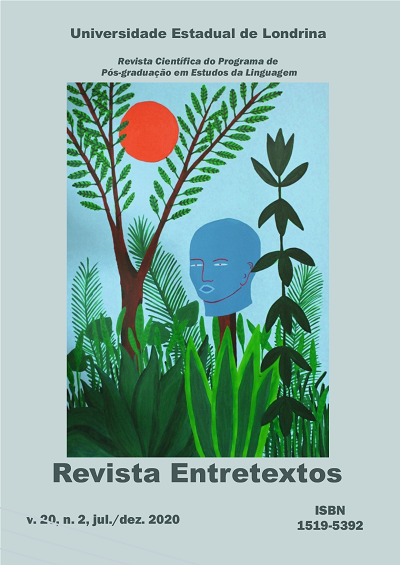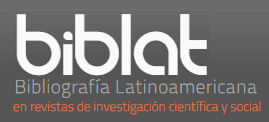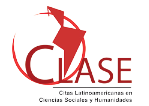Empathic reframing in the English teacher education for early years
DOI:
https://doi.org/10.5433/1519-5392.2020v20n2p121Keywords:
Critical teacher education, Conceptual development, Teaching English to children, Empathic reframing.Abstract
English language teaching to children (ELTC) is a reality in public and private
schools. On the other hand, the existing gaps in teacher education, due to the lack of guidelines for this teaching and the inclusion of this language as a discipline in the common curriculum in schools, perpetuate uncertainties and challenges regarding classroom practices. In order to contribute to the initial education of teachers who work with ELTC in the municipal schools of Apucarana (PR), an extension project was developed at the State University of Paraná
(Unespar) which aimed to promote critical practices in the ELTC. The general objective of this study is to share the sense of critical teaching of ELTC as critical moments (PENNYCOOK, 2001, 2004) that trigger empathic reframing (SMAGORINSKY; JHONSON, 2017) developed and mapped in the project in question. For this, Vygotskian assumptions about conceptual development were used, as well as the theory of argumentation according to Liberali (2013). The results indicate that even at the level of a pseudoconcept (VYGOTSKY, 2007, 2008) the project led to the development of empathic reframing, capable of contributing to a more humane society from the classroom.
Downloads
References
FREITAS, M. T. de U.; PESSOA, R. R. Ensino crítico de línguas estrangeiras/inglês e formação crítica de professores/as: a pedagogia como transgressão. In.: 63ª Reunião Anual da SBPC, 2011, Goiânia. Resumos. Goiânia: 63ª Reunião Anual da SBPC, 2011. Disponível em: http://www.sbpcnet.org.br/livro/63ra/conpeex/mestrado/trabalhos-mestrado/mestrado-marco-tulio.pdf. Acesso em: janeiro de 2016.
LIBERALI, Fernanda. Argumentação em contexto escolar. Campinas: Pontes Editores, 2013.
MATEUS, Elaine; EL KADRI, Michele.; SILVA, Kleber (Orgs.) Experiências de formação de professores de línguas e o PIBID: contornos, cores e matizes. Campinas, SP: Pontes Editores, 2013.
MATEUS, Elaine. Ética como prática social de cuidado com o outro: implicações para o trabalho colaborativo. In: MAGALHÃES, Maria Cecília; FIDALGO, Sueli Salles. (Orgs.). Questões de método e de linguagem na formação docente. Campinas: Mercado de Letras, 2011, p. 187-209.
MAZZEU, F. J. C. Uma proposta metodológica para a formação continuada de professores na perspectiva histórico-social. Cadernos CEDES, Campinas, v. 19, n. 44, abr. 1998, p. 59-72.
MCGOVERN, A. The lady in the box. New York: Turtle, 1997.
PENNYCOOK, Alastair. Critical moments in a TESOL praxicum. In: NORTON, B.; TOOHEY, K. Critical Pedagogies and Language Learning. Cambridge: Cambridge University Press, 2004. p. 327-346.
PENNYCOOK, Alastair. Critical Applied Linguistics: A Critical Introduction. Mahwah, NJ: Lawrence Erlbaum, 2001.
SMAGORINSKY, Peter. The development of social and practical concepts in learning to teach: A synthesis and extension of Vygotsky's conception. In: Learning, Culture, and Social Interaction, n. 2(4), p. 238-248, 2013. Disponível em: <http://www.petersmagorinsky.net/About/PDF/LCSI/LCSI_2013.PDF>. Acesso em: fevereiro de 2017.
SMAGORINSKY, Peter. The method section as conceptual epicenter in constructing social science research reports. Written Communication, 25, 2008, p. 389-411.
SMAGORINSKY, Peter, COOK, L. S., & JOHNSON, T. S. (2003). The twisting path of concept development in learning to teach. In: Teachers College Record, 105, 1399-1436. Disponível em: at <http://www.petersmagorinsky.net/About/PDF/TCR/TCR2003.pdf>
SMAGORINSKY. Peter; JOHNSON, L. L. Empathic Reframing of Social Justice Concepts in Book Club Discussions in a Service-Learning Teacher Education Class. 2017 (in review)
VYGOTKY, Lev Semyonovich. A construção do pensamento e da linguagem. São Paulo: Martins Fontes, 2008.
VYGOTKY, Lev Semyonovich. A formação social da mente. São Paulo: Martins Fontes, [1978] 2007.
Downloads
Published
How to Cite
Issue
Section
License
Entretextos adota a Licença Creative Commons Attribution 4.0 International, portanto, os direitos autorais relativos aos artigos publicados são do/s autor/es.
Sob essa licença é possível: Compartilhar - copiar e redistribuir o material em qualquer suporte ou formato. Adaptar - remixar, transformar, e criar a partir do material, atribuindo o devido crédito e prover um link para a licença e indicar se mudanças foram feitas.






















